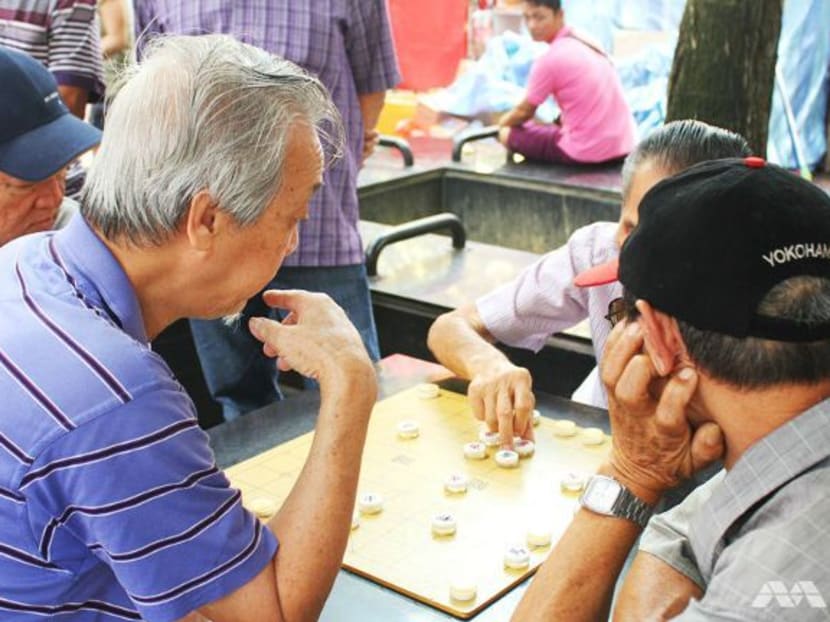Professionals can be appointed decision-makers for those who lose mental capacity
SINGAPORE — Individuals will be able to appoint professional donees to make decisions on their behalf should they lose mental capacity, after changes to the Mental Capacity Act (MCA) were passed on Monday (March 14).
SINGAPORE — Individuals will be able to appoint professional donees to make decisions on their behalf should they lose mental capacity, after changes to the Mental Capacity Act (MCA) were passed on Monday (March 14).
Speaking in Parliament, Social and Family Development Minister Tan Chuan-Jin said the move to “enable paid doneeship and deputyship services” was motivated by an emerging trend of elderly without next-of-kin.
According to Mr Tan, these are “elderly singles or childless elderly couples, who may not have family members or close friends to rely on to be their proxy decision-makers”.
Besides professional donees, who are chosen by the individual when he still has mental capacity, the Amendment Bill introduces professional deputies – appointed by the Court after the individual has lost the capacity.
These professional deputies include licensed trust companies, and professionals such as lawyers and accountants, that are registered with the Public Guardian.
BETTER PROTECTION FOR THE MENTALLY INCAPACITATED
To ensure that there are sufficient safeguards, two key amendments were passed, to allow the Court to revoke a donee’s or deputy’s powers if there is significant risk of the done or deputy abusing the person whom they have been appointed for, and to allow the Court to suspend the powers of a donee or deputy, even if no prior application was made to it.
In illustrating how the two amendments will work together, Mr Tan brought up the ongoing court case involving Madam Chung and former China tour guide, Yang Yin.
Mr Yang was charged with offences of falsifying receipts at his company, and criminal breach of trust of monies belonging to Madam Chung.
“In these kinds of cases, there is a cause for concern because the donee has been charged with an offence involving fraud or dishonesty, and there is a risk of the donor’s property being dissipated if nothing is done,” said Mr Tan.
He added: “In order to preserve the donor’s assets, the proposed amendment will now allow an application to be made to the Court to suspend the LPA (Lasting Power of Attorney) immediately, without having to apply for a revocation of the LPA. Once investigations are complete and if the donee is eventually convicted of the offences, the Court may then revoke the LPA.”
Rejecting suggestions to make it mandatory for donors to inform their family members about their LPA, or to give the Public Guardian the power to refuse the registration of an LPA if he suspects that the proposed donee is not a suitable candidate, Mr Tan suggested that the Amendment Bill must balance protection for the mentally incapacitated, as well as respect for the individual’s autonomy.
He said: “But we must remember that one of the fundamental principles of the MCA is that the decisions of a person who has mental capacity must be respected. Where do we draw the line if we do not respect a person’s autonomy?”
SUGGESTIONS FROM MPs
Ms Denise Phua, Mr Dennis Tan, Dr Fatimah Lateef and Ms Rahayu Mahzam raised concerns over costs incurred in application and appointment of one’s donee or deputy. The MPs recommended that MOH provide a set of fee guidelines for legal services relevant to the MCA and the Bill.
In response, Mr Tan said the Government will work with partners “to ensure that pro-bono, low-cost services or financial assistance are available for the low income”.
He explained that having a fee cap at the outset may “remove the incentive for service providers to charge competitive rates”, and deter competent service providers from entering the market.
Ms Sylvia Lim wanted to know what was being done to simplify the deputyship process and lower application costs for court-appointed deputies.
“The estimated legal costs for such applications is about S$6,000 to S$7,000, even in the clearest of cases. For instance, parents of mentally incapacitated children need a court order to act for their children once they attain adulthood,” she said.
Mr Tan said that in these cases involving individuals with special needs, a pilot project has shown that the average cost per family can be lowered to S$300. He added that his Ministry is working with MINDS to cover the graduating cohort of MINDS students.
“In the next phase, we intend to cover those who have already left school, and with other forms of intellectual disabilities and autism,” he said.
Ms Joan Pereira and Mr Louis Ng suggested that to reach the elderly, publicity for LPAs can involve the Pioneer Generation Office, or neighbourhood GPs.
Mr Vikram Nair noted that the class of persons to be treated as professional donees has not been set out in the Act. He suggested that this class be defined as broadly as possible.
Other changes include extending protection to donees and third parties who had entered into a transaction without knowing that the Lasting Power of Attorney had been revoked or suspended, and improving the operations of the Public Guardian’s office.
Besides public consultation, preparation for Amendment Bill also took into account the experience in some territories with longer history of similar legislation, such as England and the American state of Florida. CHANNEL NEWSASIA







